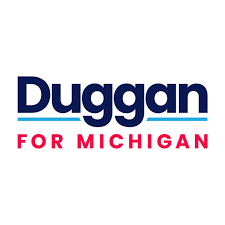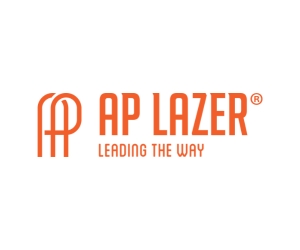
(Warren) – Independent candidate for Governor Mike Duggan has shared with educators, parents and school leaders his thoughts on how we can fix Michigan’s broken education system. The comprehensive five-year, $4.5 billion plan to turn around Michigan’s 25-year decline in school performance and rebuild one of the state’s most critical institutions: public education. The plan Duggan rolled out eliminates the higher education spending coming out of the school aid fund, putting those dollars where it belongs: K-12 education.
“Michigan’s education system has been in crisis for decades,” Duggan said. “We’re spending record amounts on our schools, yet our kids are falling further behind. It’s time for a plan that focuses on results, not politics, one that ensures every child can read and every student leaves school with a skill or career path.”
![Best 500+ Education Images [HD] | Download Free Pictures on Unsplash](https://plus.unsplash.com/premium_photo-1682125773446-259ce64f9dd7?ixlib=rb-4.1.0&ixid=M3wxMjA3fDB8MHxzZWFyY2h8MXx8ZWR1Y2F0aW9ufGVufDB8fDB8fHww&fm=jpg&q=60&w=3000)
“I’ll be on the road across Michigan to meet with parents and educators to hear directly from them the challenges their children face in the classroom,” said Duggan. “Right now, there is no accountability at the state level or at the school level. That doesn’t work. It doesn’t give parents the understanding they need to make the best decisions for their children.”
The Duggan Strategy
Mike Duggan’s answer to Michigan’s education crisis is a five-year, $4.5 billion plan that transcends partisanship by focusing on measurable outcomes and durable solutions based on consensus. Unlike prior attempts at improvement that just threw more money at the broken system or applied policy “fixes” without resources, Mike’s plan takes a smarter approach to spending that shifts more existing revenue to classrooms without a tax increase, while tethering the additional support to performance measures and reforms.
More specifically, Mike’s plan phases out the use of the state school aid fund for higher education to capture $640 million annually in expected school aid revenue growth and $260 million in savings from efficiencies and improvements in general fund departments to put an additional $900 million towards schools in his first year in office and for four years afterwards,
compounding to $4.5 billion by Year 5. It pairs annual increases to each school’s per pupil foundation allowance with new and expanded grant programs to achieve targeted outcomes.Tied to those resources are reforms that comprise the plan’s six parts:
1. School Aid Fund
Mike’s plan will phase out the use of K-12 school aid money to fund colleges and universities over five years. That change will free up about $260 million in new school funding in the first year of the plan, ramping up to an additional $1.3 billion by Year 5. The plan will also capture about $640 million annually in projected growth of the school aid fund. Together, that’s $900 million more for K-12 schools every year, adding up to an additional $4.5 billion over five years.
2. Lawmaker Accountability
Lawmakers have a responsibility to pass the state budget before July 1, and Duggan has pressed the legislature to advance legislation to pause pay for legislators and the executive branch until the budget gets done. As Mayor, Duggan passed each City of Detroit budget on time with full support of the City Council, in 2025 he finalized a budget with a surplus.
3. Literacy – A Marshall Plan for Early Reading
Mike’s plan adds more trained teachers in classrooms, improves literacy programming, incentivizes adoption of curricula and materials aligned to the science of reading, and restores accountability in Michigan’s schools. Truancy will be reduced through automated attendance alerts, local innovation grants, and early intervention programs.
More specifically, the plan triples early literacy funding, expands teacher training, and invests $500 million in reading coaches, tutoring, small-group learning, and AI-based literacy tools. A strengthened Committee for Literacy Achievement will oversee funding and ensure schools use proven, state-approved curricula. To get more quality teachers in classrooms, Duggan will reform apprenticeship programs, expand Grow Your Own and Future Proud Michigan Educator initiatives, and streamline certification for literacy educators.
With stronger reading programs, and real accountability, Michigan can become a top-25 state for reading in five years and a top-10 state in ten.
4. Career Tech Education
Mike Duggan’s plan ensures every Michigan student graduates with a real skill and career path by increasing CTE funding to over $100 million a year, doubling the number of high school counselors, and modernizing graduation requirements to better blend academics with hands-on learning.
The plan will:
Eliminate CTE deserts through new grants and local funding incentives so every region has access to career training
Modernize graduation requirements to recognize more CTE coursework
Set a statewide goal for every student to earn a credential or certificate, with up to $500 reimbursements for each earned in high-demand fields
Launch “Apprenticeship-Ready Schools” that directly connect students to paid apprenticeships
Expand dual enrollment to include trade schools and remove financial disincentives for districts
Create an Office of Education Economics to align CTE programs with real workforce needs
Turn ISDs into regional career hubs, linking schools, colleges, and employers
Invest $30 million in grants for apprenticeships, internships, and work-based learning, including education and childcare careers
Within five years, Michigan will ensure every student graduates with an employable skill, a credential, or a clear path to a good-paying job, strengthening both families and the state’s economy.
5. Hybrid School Grading System
Mike Duggan will create a hybrid school grading system that’s clear for parents and guided by educators. Right now, Michigan’s school data is confusing and hard to interpret. The new system will combine the simplicity of A-F grades with the detailed performance measures schools already report.
Each district will help decide how much weight to give to key factors – like test scores, student growth, and post-graduation readiness, within state guidelines. These choices will stay in place for at least five years and be publicly shared online.
This approach gives parents easy-to-understand grades while giving educators flexibility to focus on what matters most in their Communities.
6. School Accountability
Mike Duggan’s plan makes sure new education funding delivers real results by holding
school and state leaders accountable. A new Office of School Support and Accountability (OSSA) will track school performance and step in when schools consistently fail.
Here’s how it works:
Year 1: Schools that earn an F grade or fall into the bottom 5% must create an
improvement plan with the state
Year 2: If there’s no progress, OSSA provides extra help. If the school still fails, it
stays under close supervision
Years 3 and 4: Continued failure leads to the removal of the principal
Year 5: If the school still doesn’t improve, the superintendent is replaced
State funding will be tied to this process to ensure compliance and results.
The Bottom Line
Michigan’s education system is failing its students and has been for decades. By putting
politics above policy, the state has failed to translate its record funding levels into
positive outcomes. But this decline is reversible.
States that have improved outcomes share the common threads of strong, durable
leadership and consistent bipartisan support for resources and reforms. With a bold,
independent Governor and an unwavering focus on results, Michigan can reverse
course and lead the nation in education achievement. Mike Duggan and his five-year,
$4.5 billion plan provide that path forward.
This is not just a policy blueprint, it’s a call to action. Families deserve a system that
works for them, one that prepares students to succeed in college, careers, and life. And
Michigan’s future depends on it.
By choosing consensus over chaos, discipline over dysfunction, and performance over
partisanship, we can fix the broken system and build a better future for all.









